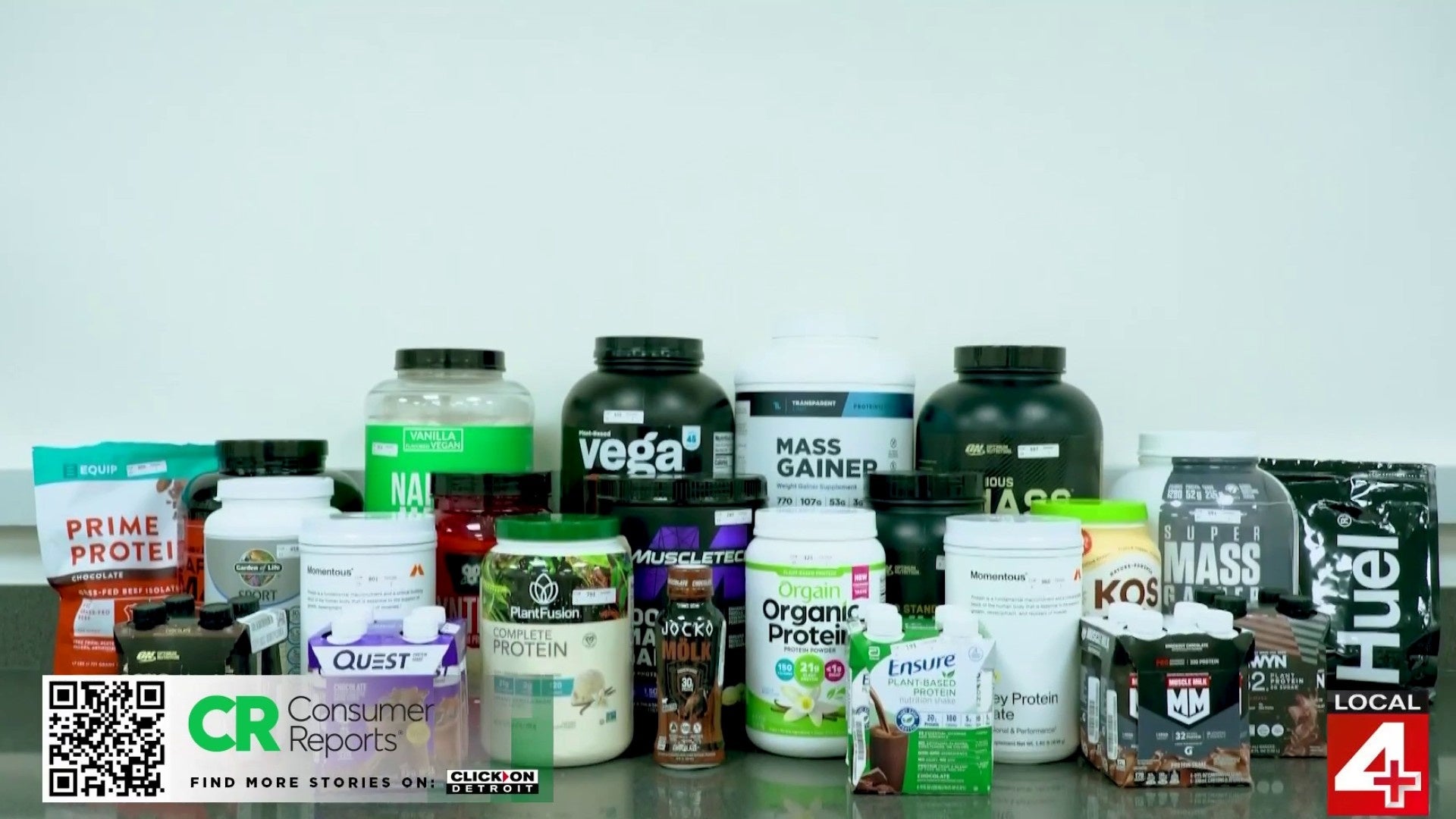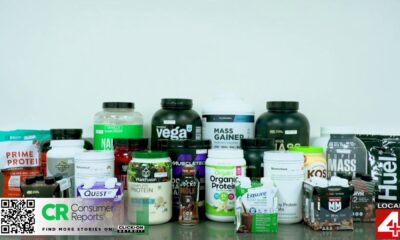Health
Consumer Reports Reveals Lead Hazard in Popular Protein Powders

A recent investigation by Consumer Reports has raised serious concerns regarding the safety of protein powders and shakes, highlighting troubling levels of lead in some popular products. With protein supplements increasingly used as workout fuel and meal replacements, the findings suggest that consumers may unknowingly expose themselves to harmful substances.
Consumer Reports tested 23 widely available protein powders and shakes, uncovering that over two-thirds contained more lead in a single serving than what experts deem safe for an entire day. Alarmingly, some products had lead levels exceeding the safe limit by more than ten times. Plant-based protein powders were particularly problematic, showing lead levels nine times higher than those found in dairy-based powders and double that of beef-based alternatives.
Among the most concerning results, Naked Nutrition’s Vegan Mass Gainer registered approximately 1,570 percent of the daily lead limit established by Consumer Reports. Similarly, Huel’s Black Edition vegan powder raised alarms with lead levels exceeding 1,200 percent of the same limit. In light of these findings, experts from Consumer Reports recommend avoiding these products altogether.
A spokesperson for Huel emphasized that their ingredients undergo “rigorous testing” and expressed confidence in the formulation and safety of their products. In response to the investigation, Naked Nutrition has requested a third-party evaluation of its Mass Gainer Supplement powder, stating, “We take our customers’ health very seriously.”
Concerns Across Protein Categories
The investigation also examined dairy-based protein powders, which generally contained lower amounts of lead compared to their plant-based counterparts. Still, approximately half of the dairy-based products tested had concerning levels of lead or other contaminants. According to Consumer Reports Investigative Reporter Paris Martineau, these findings indicate that consumers should be cautious when using protein supplements daily.
Nutritionists suggest that most individuals do not require protein supplements, as everyday foods like beans, tofu, eggs, dairy, fish, and lean meats already provide sufficient protein. For those who choose to use protein powders, experts advise moderation, noting that these products may be best used occasionally rather than as daily staples.
Additionally, Consumer Reports points out that the nutrient many people lack is fiber, which is essential for long-term health. Federal dietary guidelines recommend that adults consume between 22 and 34 grams of fiber daily, depending on age and sex.
As the popularity of protein supplements continues to grow, the findings from Consumer Reports serve as a critical reminder for consumers to remain vigilant about the products they choose. The potential health risks associated with lead exposure highlight the need for informed decisions when it comes to dietary supplements.
-

 Technology5 months ago
Technology5 months agoDiscover the Top 10 Calorie Counting Apps of 2025
-

 Health3 months ago
Health3 months agoBella Hadid Shares Health Update After Treatment for Lyme Disease
-

 Health3 months ago
Health3 months agoErin Bates Shares Recovery Update Following Sepsis Complications
-

 Technology4 months ago
Technology4 months agoDiscover How to Reverse Image Search Using ChatGPT Effortlessly
-

 Technology1 month ago
Technology1 month agoDiscover 2025’s Top GPUs for Exceptional 4K Gaming Performance
-

 Technology3 months ago
Technology3 months agoElectric Moto Influencer Surronster Arrested in Tijuana
-

 Technology5 months ago
Technology5 months agoMeta Initiates $60B AI Data Center Expansion, Starting in Ohio
-

 Technology5 months ago
Technology5 months agoRecovering a Suspended TikTok Account: A Step-by-Step Guide
-

 Health4 months ago
Health4 months agoTested: Rab Firewall Mountain Jacket Survives Harsh Conditions
-

 Lifestyle5 months ago
Lifestyle5 months agoBelton Family Reunites After Daughter Survives Hill Country Floods
-

 Technology4 months ago
Technology4 months agoHarmonic Launches AI Chatbot App to Transform Mathematical Reasoning
-

 Health3 months ago
Health3 months agoAnalysts Project Stronger Growth for Apple’s iPhone 17 Lineup













